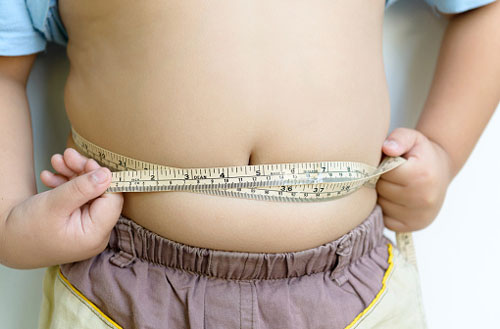 With one in three kids currently overweight or obese in the U.S., childhood obesity is now a priority health concern among parents, surpassing smoking and drug abuse. Now, according to a new study published in the International Journal of Obesity, children who regularly take antibiotics gain weight much faster than children who don’t.
With one in three kids currently overweight or obese in the U.S., childhood obesity is now a priority health concern among parents, surpassing smoking and drug abuse. Now, according to a new study published in the International Journal of Obesity, children who regularly take antibiotics gain weight much faster than children who don’t.
According to the American Heart Association (AHA), the occurrence of obesity in children has more than tripled from 1971 to 2011. Children are now facing a wide range of health problems that were not previously seen until adulthood in older generations.
Such health problems include type 2 diabetes, high blood pressure, and elevated cholesterol levels. Obese children also have a higher risk of experiencing depression, negative body image, and low self-esteem.
For the study, researchers at the Johns Hopkins Bloomberg School of Public Health in Baltimore assessed electronic health records of 163,820 children between the ages of three and 18 from 2001 to 2012. The team analyzed height and body weight to determine body mass index (BMI) and determined antibiotic use from the previous year.
The researchers discovered that at age 15, children who took antibiotics seven times or more during childhood weighed approximately three pounds more than those who didn’t take antibiotics. Furthermore, the researchers found that almost 21% of children in the study, about 30,000, received seven or more antibiotic prescriptions during childhood.
According to the study’s lead author, Dr. Brian S. Schwartz, doctors are becoming more cautious when prescribing antibiotics, but parents will often demand antibiotics for cold viruses and other conditions that won’t benefit from antibiotic use.
In addition, he notes that excessive antibiotic use is leading to the increase of antibiotic-resistant bacteria.
“Systematic antibiotics should be avoided except when strongly indicated,” says Dr. Schwartz. “From everything we are learning, it is more important than ever for physicians to be the gatekeepers and keep their young patients from getting drugs that not only won’t help them but may hurt them in the long run.”
Despite the findings being substantial, Dr. Schwartz suggests that the weight gain observed in children who regularly used antibiotics is possibly underestimated. For one, their antibiotic-use histories, including antibiotic use outside the health system, would not have been recorded.
“Your BMI may be forever altered by the antibiotics you take as a child,” says Dr. Schwartz. “Our data suggest that every time we give an antibiotic to kids, they gain weight faster over time.”
Researchers explain that our bodies contain 10 times more bacterial cells in the body than our own cells and many of these bacteria work to help the body absorb nutrients and digest food.
Antibiotics kill off harmful bacteria, but they also kill off the good bacteria. Repeated antibiotic use may change the microorganisms. This can affect the way they break down food and increase caloric intake, contributing to weight gain.
Commenting on the findings, Dr. Schwartz concludes, “While the magnitude of the weight increase attributable to antibiotics may be modest by the end of childhood, our finding that the effects are cumulative raises the possibility that these effects continue and are compounded into adulthood.”
Source for Today’s Article:
Ellis, M., “Are antibiotics making our kids fat?” Medical News Today web site, October 22, 2015; http://www.medicalnewstoday.com/articles/301423.php.
